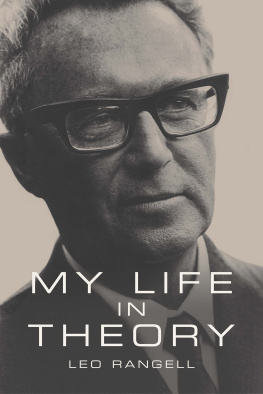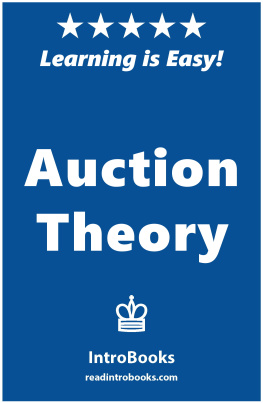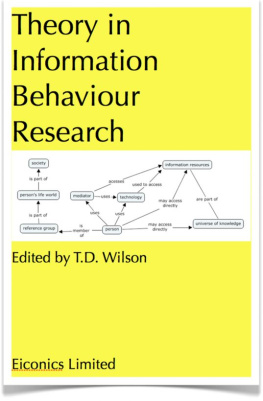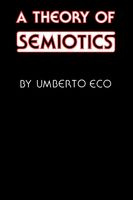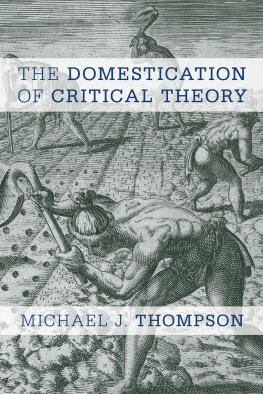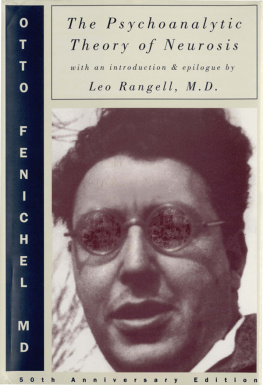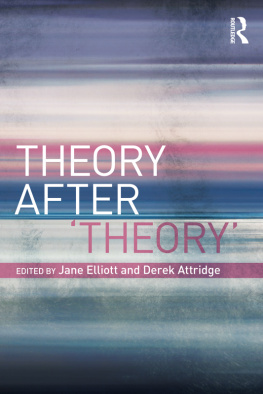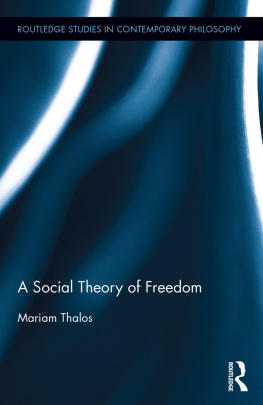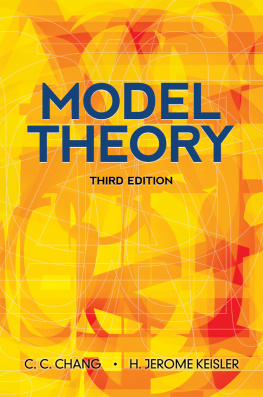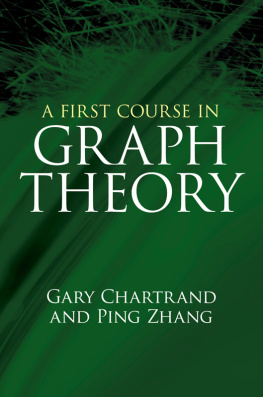Leo Rangell - My Life in Theory
Here you can read online Leo Rangell - My Life in Theory full text of the book (entire story) in english for free. Download pdf and epub, get meaning, cover and reviews about this ebook. year: 2021, publisher: Other Press, genre: Politics. Description of the work, (preface) as well as reviews are available. Best literature library LitArk.com created for fans of good reading and offers a wide selection of genres:
Romance novel
Science fiction
Adventure
Detective
Science
History
Home and family
Prose
Art
Politics
Computer
Non-fiction
Religion
Business
Children
Humor
Choose a favorite category and find really read worthwhile books. Enjoy immersion in the world of imagination, feel the emotions of the characters or learn something new for yourself, make an fascinating discovery.
- Book:My Life in Theory
- Author:
- Publisher:Other Press
- Genre:
- Year:2021
- Rating:5 / 5
- Favourites:Add to favourites
- Your mark:
- 100
- 1
- 2
- 3
- 4
- 5
My Life in Theory: summary, description and annotation
We offer to read an annotation, description, summary or preface (depends on what the author of the book "My Life in Theory" wrote himself). If you haven't found the necessary information about the book — write in the comments, we will try to find it.
My Life in Theory — read online for free the complete book (whole text) full work
Below is the text of the book, divided by pages. System saving the place of the last page read, allows you to conveniently read the book "My Life in Theory" online for free, without having to search again every time where you left off. Put a bookmark, and you can go to the page where you finished reading at any time.
Font size:
Interval:
Bookmark:
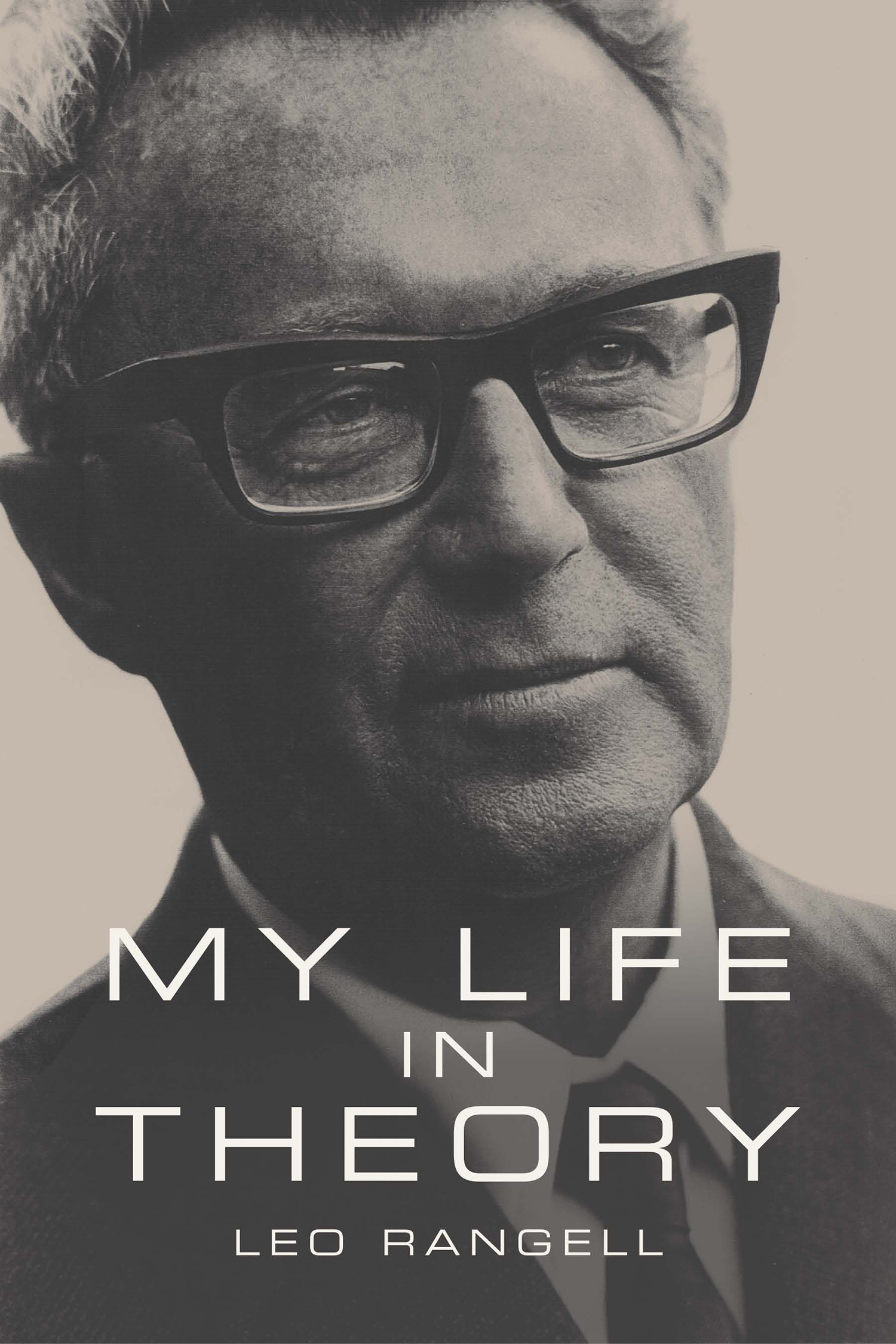
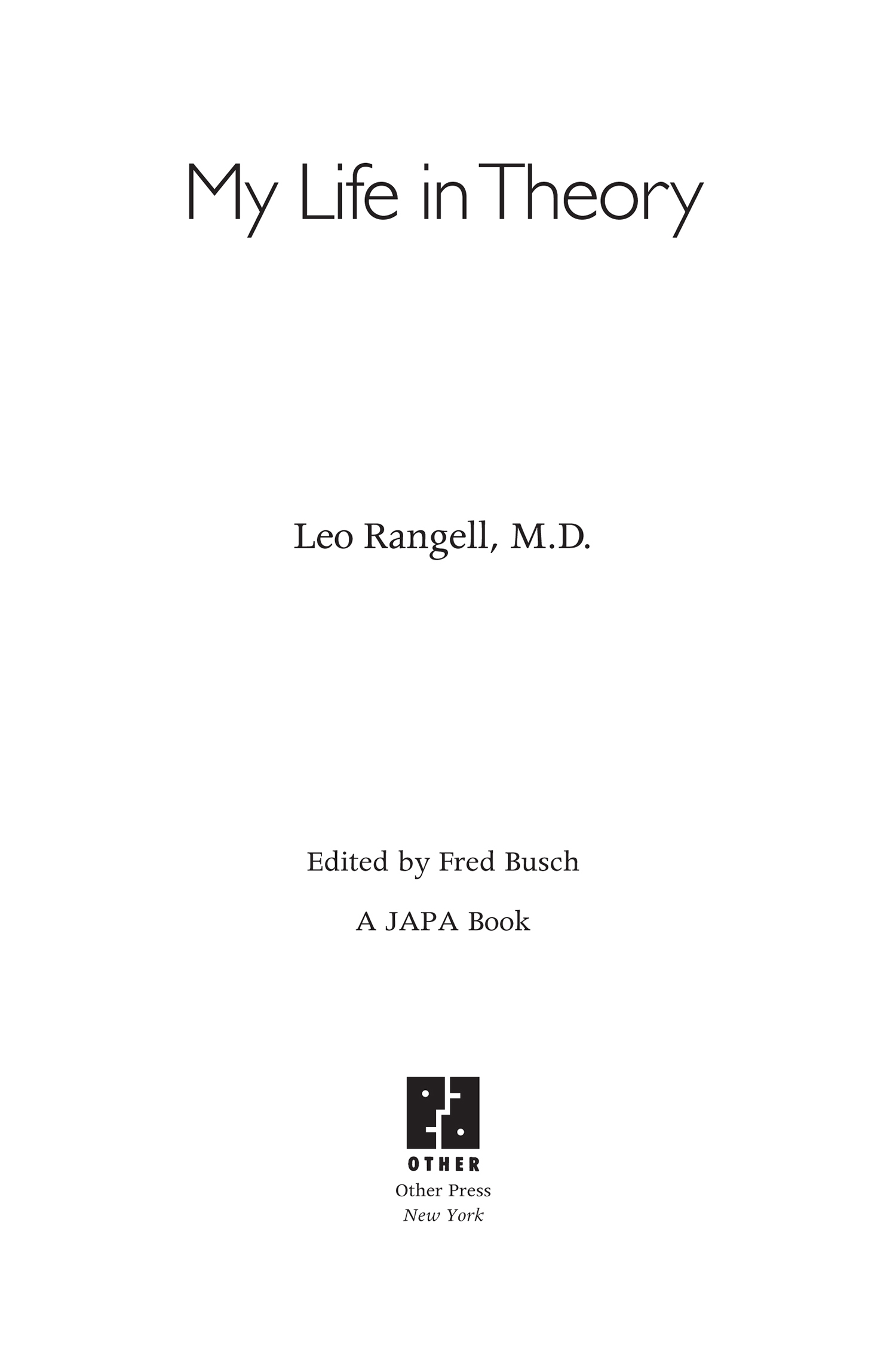
Copyright 2004 American Psychoanalytic Association
Production Editor: Robert D. Hack
Ebook ISBN9781635421408
All rights reserved. No part of this publication may be reproduced or transmitted in any form or by any means, electronic or mechanical, including photocopying, recording, or by any information storage and retrieval system, without written permission from Other Press LLC, except in the case of brief quotations in reviews for inclusion in a magazine, newspaper, or broadcast. For information write to Other Press LLC, 267 Fifth Avenue, 6th Floor, New York, NY 10016. Or visit our Web site: www.otherpress.com.
The Library of Congress has cataloged the printed edition as follows:
Rangell, Leo.
My life in theory / by Leo Rangell.
p. cm.
Includes bibliographical references and index.
ISBN 978-1-59051-113-8 (hardcover : alk. paper)
1. Rangell, Leo.2. PsychoanalystsUnited StatesBiography.I. Title
RC438.6.R357 A3 2003
150.195092dc22
2003022543
a_prh_5.6.1_c0_r0
FOR ANITA, JUDY, SUSAN, RICHARD, AND PAUL
This book is about the theory of psychoanalysis as I have studied it, practiced it, and participated in its development for more than half of the century of its existence. It is difficult to encompass a lifetime of engagement with such a complex phenomenon as psychoanalytic theory. The challenges intrinsic to that task are apparent in the succession of titles I considered during my work on this book. Ultimately the story that unfolded was a composite of all of them.
A Unified Theory of Psychoanalysis. This refers to the fact that I espouse one unified theory of psychoanalysis, and that I differ in this from the pluralistic approach of many analysts today. I consider the current multiplicity of theories to be at the heart of the decline of psychoanalysis as an inspirational intellectual discipline, if not of its pragmatic and sociologic problems.
Splits and Comings Together came to mind as a subtitle while I was describing the experiences and travails of the psychoanalytic body during its long organizational life. Psychopathology can affect groups as well as individuals, and groups of psychoanalysts are not immune. The outcome of group psychopathology in our field has been recurrent splitsand related phenomena too, I would add now, having observed recently that the rapprochements and reunions now taking place may share the same determinants as the divisions that they purport to heal.
A major premise of this book is that there is a reciprocal relationship between two styles of theory progression: the scientific method, which Freud extended beyond the physical to the life of the mind, and the subjective and interpersonal factors that influence individuals and groups. In this history I will elaborate the workings of the subjective along with the objective because these are little acknowledged when the course of analytic theory is discussed. But I do not intend by that to diminish the role of the objective observer. The coexistence of these two styles, one objective and aiming at science, and the other subjective and fueled by affect, is an example of the general principle that a new discovery or thesis does not exclude or displace a valid older one. The violation of this principle incurs many difficulties.
My Life in Theory. This has been the unswerving choice for title of all who read early versions of the manuscript. It highlights an important point. This is a record of the development of theory as I have felt it in my own life. I describe its progress and regress as I saw it, the ways that I feel I have influenced its course, and my experiences of the roles of others. In sixty yearsmore than half of the psychoanalytic centuryof discussion and debate about theory, I have come to know firsthand almost all of the major contributors of this period. I have viewed their influences, positive and negative, with interest, and I want to report here what I have seen. In doing so, I must accept the inhibitions imposed by ethics and the law when it comes to recording the behavior of individuals. This is an unavoidable complication. The need for discretion exists in contrapuntal tension with the need for a real record of the interactions among the people who have shaped this significant intellectual discipline.
Sixty Years as a Psychoanalyst. Some of my readers have emphasized this length of time, but not I. I would as soon forget it! The number, moreover, may mean nothing. When someone said to Freud that a dwarf sitting on the shoulders of a giant can see further than the giant, Freud replied, Yes, unless he is blind. I once estimated that I have listened to some 175,000 hours of free associations. But if the tools of my listening are deficient or inaccurate, it might as well be zero.
Ideas and People. This potential subtitle addresses the fact that people shape ideas; we are influential not only in enhancing ideas and their application, but also in diminishing their meaning and value. I mean to chronicle the ways that psychoanalytic groups, as assemblages of people, have worked sometimes to support, but also sometimes to inhibit, the optimum development of theory. My discussion of people includes the roles of individuals as I have observed them, directly during my own professional life and indirectly before that.
The Decline, and a Path for the Return of, the Theory of Psychoanalysis came to me toward the end. This is the primary message of this expositionthat the theory of psychoanalysis has been fragmented and is in a state of decline, and that revival requires reunification into one total composite theory, which I will discuss and describe. But this quite definitive sentence contained too much for a title; it did not capture my readers or induce them to go on. A more succinct phrase was desired by all.
My Life in Theory, then, and for the subtitle its goala single theory. Should I call it a unified or a unitary theory? Unified seemed to imply that several complete theories exist that must be fused. Unitary seemed to fit better, as it did fifty and thirty-five years ago when I wrote of combining Freuds two partial theories of anxiety into one unitary one.
But I am speaking not only of theory, but of psychoanalysis in all its aspects. So, after a process of compromises and choicesthe matter of choice is an underattended aspect of theory that I will discussthe title of the book became My Life in Theory: Toward a Unitary Psychoanalysis.
This remained the title until almost the moment of closing. The practical publishing people then asked for a final change: eliminate the subtitle, in the service of streamlining and appeal. So be it. Whatever the book has to say can come under that, My Life in Theory.
My wish is that this running account of my professional journey, including as it does all the thoughts and ongoing conflicts intrinsic to the subject, may conjure up in the readers mind the interrelationships of the paths that have converged in the second half-century of our exciting and challenging field.
To think back about who nurtured and sustained an effort that has been nascent and diffused over a chunk of a century presents a challenge. This book has no sharp line or point of beginning, nor a place I can consider to be the end. I interacted with and was influenced by the social and professional contacts of a lifetime. I observed and participated with thousands, with every degree of closeness and distance, from intimate to afar, and in myriad ways. And over sixty years, the professional parade at every stage drew new people and lost old ones.
Font size:
Interval:
Bookmark:
Similar books «My Life in Theory»
Look at similar books to My Life in Theory. We have selected literature similar in name and meaning in the hope of providing readers with more options to find new, interesting, not yet read works.
Discussion, reviews of the book My Life in Theory and just readers' own opinions. Leave your comments, write what you think about the work, its meaning or the main characters. Specify what exactly you liked and what you didn't like, and why you think so.

